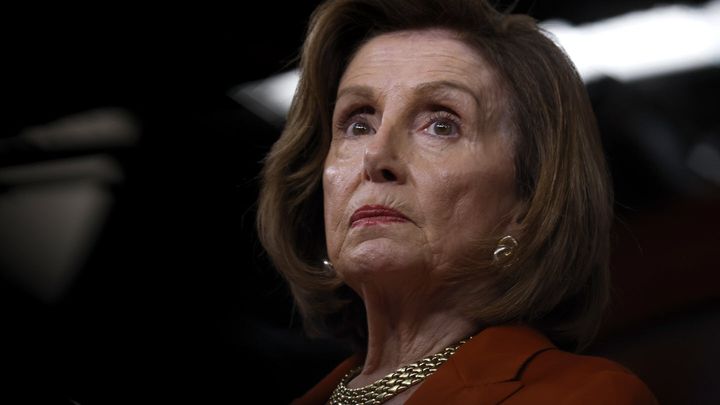The Democratic National Committee has quietly dropped from its party platform language calling for an end to subsidies and tax breaks for fossil fuel companies, HuffPost reported on Tuesday. The language had been added to the platform in error, a DNC spokesperson told HuffPost.
The day after a draft of the Democrats’ 2020 policy platform was released, July 23, climate journalist Emily Atkin noted that unlike the 2016 platform, it did not call for an end to subsidies and tax breaks for fossil fuel companies. According to HuffPost, the language was added to the platform after being included in an omnibus amendment on July 27, before being removed from the final version circulated earlier this week ahead of the convention.
With climate change accelerating at an alarming pace, many Democrats believe that defeating President Donald Trump and winning more congressional seats is critical for beginning to address the issue to ensure the medium-term continuation of human society as we know it. Trump has called climate change a hoax, and many powerful Republicans in Congress have either made similar statements or believe that the problem is best left to the will of the private sector.
While the Democratic Party does not openly embrace climate science denial, it has done little to protect itself from undue influence from the fossil fuel industry, which is the leading driver of global warming and sees proposals like the Green New Deal as an existential threat. Through its donors, its law firm, and the oil and gas industry lobbyists it has put in top positions at the DNC, Democratic Party politics remains deeply entwined with the fossil fuel industry.
In August 2018, the DNC approved a resolution from Chair Tom Perez that reversed a DNC policy prohibiting it from accepting contributions from fossil fuel PACs. “The DNC gratefully acknowledges and will continue to welcome the longstanding and generous contributions of workers, including those in energy and related industries, who organize and donate to Democratic candidates individually or through their unions’ or employers’ political action committees,” the resolution reads.
Shortly thereafter, donations from fossil fuel executives began flowing into DNC coffers. In August 2019, Sludge reported that the DNC had received at least $60,750 from owners and executives of fossil fuel companies including Krumme Oil, Duke Energy, Hightowers Petroleum, and Southern Petroleum Resources. That figure has almost certainly increased dramatically since.
The DNC’s associate chairman is Jaime Harrison, a former lobbyist for the American Coalition for Clean Coal Electricity. The coalition represents major American coal companies like Murray Energy and Peabody Energy, and while Harrison was lobbying for the group it fought against President Obama’s Clean Power plan and other climate-related regulations.
Fossil fuel lobbyists have also been appointed to powerful DNC committee positions by Perez.
Tonio Burgos, a well-known fossil fuel lobbyist in New York and New Jersey, serves on the DNC’s Executive Committee and Budget and Finance Committee. For more than a decade, Burgos lobbied for Williams Companies as it sought to win approval for its so-called Northeast Supply Enhancement pipeline project that would have run beneath New York harbor and delivered fracked gas from Pennsylvania exclusively to the National Grid utility company. He has also lobbied for National Grid, and currently lobbies in New Jersey for natural gas holding company South Jersey Industries and Public Service Enterprise Group, a utility company that operates a fleet of natural gas, coal, and oil-fired power plants.
The DNC’s deputy national finance chair is Chris Lowe, who is the chief investment officer at SteelRiver Infrastructure Partners. The investment firm specializes in the energy sector and has investments including Delta Natural Gas, People Natural Gas, and oil and gas pipeline firm SICIM. Lowe is also a member of the DNC Budget and Finance Committee.
A 2019 report from the UK-based nonprofit InfluenceMap found that the five largest oil and gas companies—ExxonMobil, Shell, Chevron, BP and Total—spend $200 million a year in lobbying and misleading ad campaigns to delay strong climate policy.
The Democratic Party’s law firm of choice, Perkins Coie, also works to promote the fossil fuel industry’s interests. Besides providing legal representation for companies including Texaco, Baker Hughes, Northwest Natural Gas, Conoco, TransCanada and Valero, Perkins Coie is lobbying for the industry against environmental regulations that many Democratic voters support. The primary focus of Perkins Coie’s fossil fuel lobbying in recent years has been to secure hardship waivers from the requirements of the Renewable Fuel Standards program, or RFS, for a coalition of oil refineries. The waivers allow the refineries to continue refining petroleum without blending fuels made from renewable sources like ethanol and biodiesel.
Jeff Berman, a DNC member appointed by Perez to the Rules and Bylaws Committee, is a former lobbyist with law firm Bryan Cave LLP who in 2011 lobbied for oil pipeline company Transcanada on “submission for a presidential permit for Keystone XL pipeline.” Louisiana state Senator Karen Carter Peterson, a party official appointed by Perez to co-chair the Credentials Committee, is counsel at Dentons, the world’s largest law firm, which has served numerous clients in the oil and gas industry including French oil major Total S.A. and Russian energy company Lukoil. Charlie King, a DNC member appointed by Perez to the Resolutions Committee—which voted against holding a presidential debate last year focused on the climate crisis—is a partner at Mercury Public Affairs, which lobbied for several oil and gas industry clients last year including PennEast Pipeline and drilling company EnVen Energy Ventures.
While presumptive nominee Joe Biden’s climate plan calls for an end to fossil fuel subsidies, he has not called for an immediate ban on fracking and he has surrounded himself with advisers whose careers have been built on embracing oil and gas. One of Biden’s climate advisers, Heather Zichal, earned $1.1 million for serving on the board of natural gas giant Cheniere Energy, and his campaign co-chair, Rep. Cedric Richmond (D-La.), has one of the most fossil fuel industry-friendly voting records of all Democrats in Congress.
Biden’s climate plan received an “F-” grade from the youth-led Sunrise Movement.
Related from Sludge:
Kennedy to Refund Donations From Fossil Fuel Lobbyist
Trump Admin Bails Out Oil and Gas Companies That Gave Millions to GOP Groups



